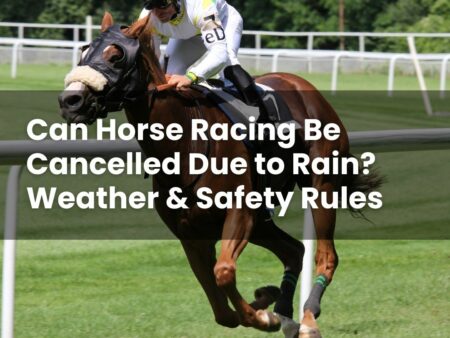Concerns about animal welfare in sport have become increasingly prominent, and horse racing is no exception. Questions have been raised by both the public and campaign groups about certain practices within the industry, with some suggesting that these issues could eventually lead to stricter restrictions.
This blog post looks at what animal welfare means in the context of horse racing, highlighting the key topics currently under discussion and the role of campaign groups in shaping the conversation. It also provides an overview of the UK’s regulatory framework and considers the potential impact on jobs and local communities.
By the end, you should have a clearer understanding of the main welfare concerns in horse racing and the wider context of the ongoing debate.
Introduction To Animal Welfare Concerns In Horse Racing
Concerns about horse welfare have become more visible as public expectations around animal care have evolved. Key questions include how horses are prepared for races, cared for when not competing, and managed after their racing careers.
Different stakeholders have varied views. Those within the sport often point to ongoing improvements, while critics emphasise areas still under scrutiny. These differing perspectives affect both policy decisions and public opinion.
What Are The Main Animal Welfare Issues In Horse Racing?
Several matters are often highlighted when discussing horse welfare, which we will discuss in more depth in the following subsections.
Injuries
Horses may sustain injuries during training or races, ranging from minor strains to more serious fractures. Fatalities are uncommon but do occur.
Racecourses and governing bodies implement practices aimed at reducing harm, such as veterinary checks and track improvements. Even with these precautions, serious injuries remain a notable concern.
Use of the Whip
Whip usage in UK racing is governed by specific rules, covering permissible strikes and whip type. Officials monitor races, and breaches may result in penalties.
Some argue that its use assists rider guidance, while others raise concerns about discomfort or stress. These debates continue to inform discussions about acceptable practices.
Living Conditions
Horses are subject to regulations regarding stable size, ventilation, diet, exercise, and turnout. Some training yards have introduced upgraded facilities and therapy programmes.
Standards might vary between yards, and welfare groups maintain oversight to encourage compliance.
Retirement and Aftercare
After their racing career, horses may move into riding schools, eventing, or other equestrian roles, although some require retraining or rehoming. Charities and industry initiatives offer support, but demand for placements may sometimes outstrip resources.
The availability of aftercare programmes may influence public perceptions of the sport.
Will Horse Racing Ever Be Banned In The UK?
At present, there are no government plans to prohibit horse racing. Bodies like the British Horseracing Authority (BHA) establish and enforce welfare standards, reviewing rules as new information emerges.
Calls for banning racing are largely hypothetical and often arise from ethical concerns. Industry efforts generally focus on refining safety measures, strengthening rules, and supporting retired horses. Legal, economic, and practical considerations make a full ban unlikely in the foreseeable future.
What Role Do Animal Rights Organisations Play In Horse Racing?
Welfare and rights organisations track racing outcomes, including injuries and fatalities, and campaign for clearer reporting and improved aftercare.
They interact with regulators, provide data for policy discussions, and run public awareness initiatives. Many groups also contribute to retraining and rehoming programmes, helping former racehorses transition to new roles, which builds on the earlier discussion of retirement considerations.
What Are The Economic Impacts Of Banning Horse Racing?
The sport supports a wide array of employment: training yards, racecourses, breeding operations, transport, veterinary services, and equine suppliers. Local economies benefit from race-day tourism, hospitality, and related spending.
If someone were hypothetically to stop racing, media rights, sponsorship, and wagering activity would also be affected. Horses already in training or breeding programmes would require ongoing attention, including potential retraining or rehoming, increasing the demand on resources.
Economic effects, therefore, interact closely with welfare considerations, highlighting the broader consequences of any major changes to the sport.
Animal welfare remains a central concern in UK horse racing, with oversight covering training, racing, and aftercare. Current policy emphasises improved standards, transparency, and support for retired horses rather than the elimination of the sport. Public debate, research, and advocacy by welfare organisations continue to influence how regulations and practices evolve.







